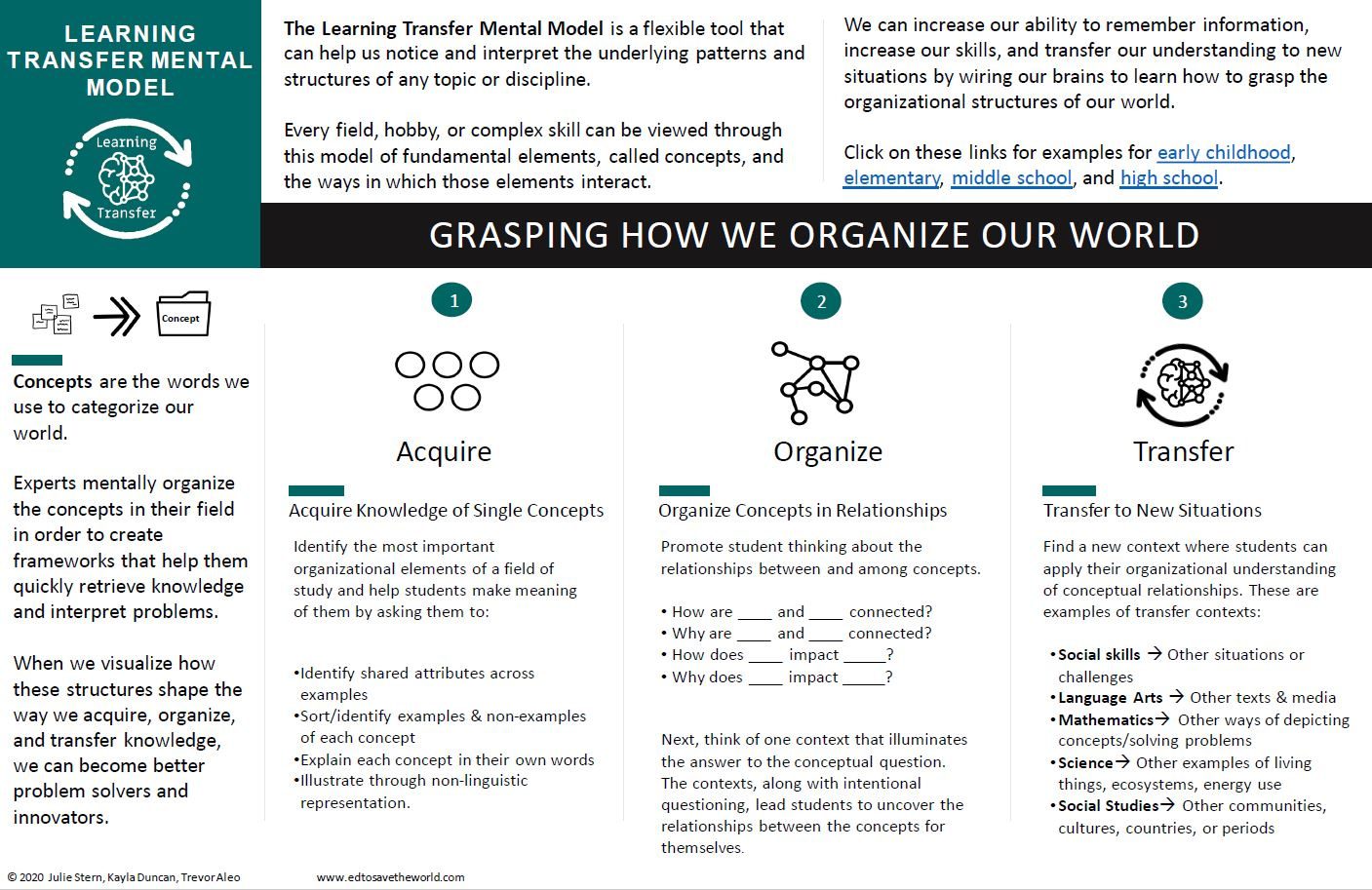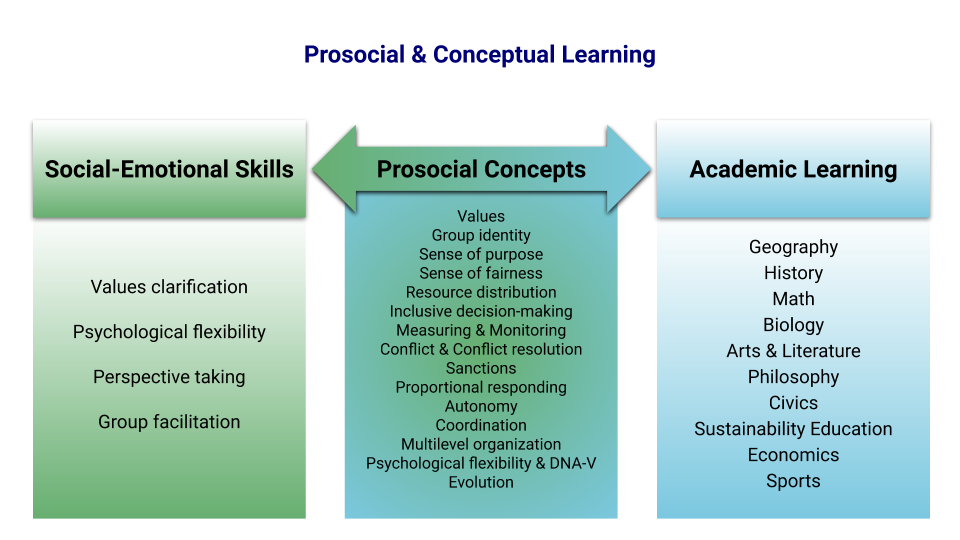Learning the concepts of being human
Published in Neuroscience

By Dustin Eirdosh & Susan Hanisch
Fish are born expecting water, humans are born expecting culture"
- Prof. Michael Tomasello,
Former Co-Director of the Max Planck Institute
for Evolutionary Anthropology
Research in child development tells us that even the youngest human infants have a marked predisposition to pay attention to the social dynamics that pervade their everyday lives. At first, merely tracking the eye gaze and sound patterns of our direct caretakers trains our brain on the important foundations of our cultural environment. Within the first year, most of us begin our journey into upright walking and the use of language to describe the world around us. As we age, we acquire and organize a vast wealth of words that help us make sense of and categorize our expanding experience of being human - educators call such words concepts.
Inevitably, no matter where one is born, we will acquire a network of concepts for understanding humans - ourselves and those around us. We develop stories and concepts about who we ourselves are as individuals. We divide the world into those who are on our team and those who are not. And we create theories about how human thoughts and behaviors (our own and others') will play out in a diversity of social contexts. We do all these things automatically and intuitively, and, sometimes, our theories about human behavior even work pretty well. So it might seem, sometimes, that there is no need for educational systems to get into the game of shaping student conceptions of the human condition.
Of course, sometimes, our untutored theories about human thoughts and behavior do not work so well. The modern world has no shortage of examples in which attempts to shape human behavior or culture are ineffective at best, and perilously mismatched at worst. From attempts at school reform that drive up student and teacher mental health challenges, to climate activism that ostracizes supporters or inflames the opposition. Our conceptual understanding of the human condition drives our strategies for making valued change in our own lives, our communities, and globally. Today there is a wealth of interdisciplinary scientific perspectives on the origins and drivers of values-driven social change within our human lineage. Yet education and curriculum design, with a pension towards rigid disciplinary boundaries, is behind the curve and ill suited to catch up with current thinking.
This is a big discussion for a short blog post, so we will point only to two specific educational innovation communities that have inspired our thinking at GlobalESD.org and which we believe contain the strongest, most evidence-informed, and most practical strategies for empowering teachers and students to engage with the core concepts of being human and reflect on the understanding of our species they wish to evolve within themselves.
Conceptual learning that transfers
Education innovator Julie Stern and her team of teacher leaders at Ed to Save the World are doing a remarkable job at synthesizing and creating evidence-informed best practices to help teachers and students think clearly about how we can acquire, organize, and transfer our understanding of core concepts from the classroom into real world situations. Specifically, their Learning Transfer Mental Model for lifelong learning provides a simple yet powerful guide to understanding how we come to understanding concepts and their relationships.

This model of conceptual learning is exceedingly powerful for engaging how we should teach for deep understanding of any given conceptual network, but it says relatively little about the specific milieu of concepts and conceptual relationships that are most critical for the development of a practical understanding of social change in human societies.
Prosocial Schools
Prosocial.world is the first social change method based on evolution and behavioral science to strengthen cooperation and collaboration for groups of all types and sizes. Based on the Nobel prize winning science of Elinor Ostrom on the cultural diversity of solving collective action problems, Prosocial provides a scientific community and group facilitation process that has unique education potential. Towards that aim, Prosocial Schools is an emerging international network for exploring how the Prosocial process can help strengthen school improvement efforts, enhance school cultures for well-being, and offer innovative interdisciplinary academic learning opportunities, all within an integrated package grounded in understanding the core concepts of being human.

Because of the historical, cumulative, and interdisciplinary knowledge synthesis that grounds the theory behind Prosocial, the core concepts and conceptual relations of this project frame a unique opportunity for linking academic and social-emotional learning. We are helping get this network off the ground now and welcome educators, school leaders, and education researchers to get involved at any level.
Conclusion
Millions of years of human evolution has empowered every individual born today to naturally, intuitively, and automatically evolve within themselves a network of concepts and beliefs about what it means to be human and how to work towards those values we have identified for ourselves and our communities. Whether such untutored mental models of humanity are adequate for today's world is an empirical question for which there is growing evidence that the answer is no. Schools, teachers, and students need tools to engage with the modern interdisciplinary sciences seeking to understand the wide diversity of the human condition. Innovative education communities are now emerging, it is up to us to connect the dots and bring these new models of thinking and teaching into classrooms around the world.
Further reading from Global ESD @ NPJ Science of Learning Blog:
- Teaching human behaviour across the curriculum
- Should we teach evolution beyond the biology classroom?
Recent academic articles and preprints:
Follow the Topic
Your space to connect: The Psychedelics Hub
A new Communities’ space to connect, collaborate, and explore research on Psychotherapy, Clinical Psychology, and Neuroscience!
Continue reading announcement




Please sign in or register for FREE
If you are a registered user on Research Communities by Springer Nature, please sign in